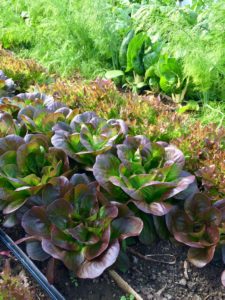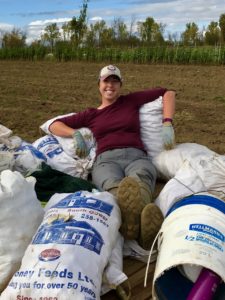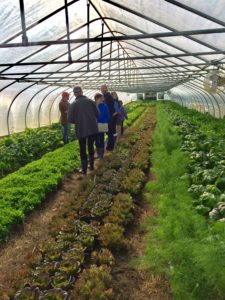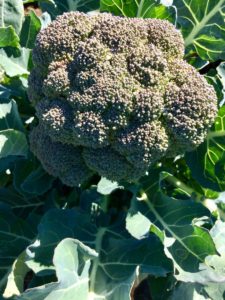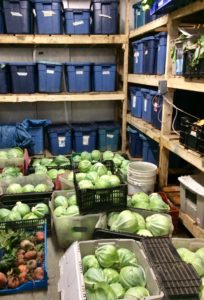Bluegrass Farm is a certified organic, mixed vegetable farm in Jasper, Ontario (15 minutes from Merrickville or Smiths Falls; 75 min from downtown Ottawa). We are a small family farm, now in our twelfth year of organic vegetable production, and our ninth year farming on this 100-acre property. We are inviting a farmer or farm team to share this land and infrastructure in order to establish their own farm business.
After six years running a Winter CSA and selling salad greens nearly year-round to restaurants and retail customers, Brad and Leela returned to full-time off-farm jobs, scaling back our production to more of a side hustle. We grow a limited number of crops and sell most of our produce through Farmhouse Food, a farmer-run co-operative that markets into Ottawa-Gatineau, of which we are a founding member.
As a result of our shift in focus, much of our farm land and infrastructure is now underutilized. We feel we can offer a valuable opportunity to another farmer or farm team looking to start up or expand their own operation, without having to make major initial investments in land, infrastructure and equipment.
We are inviting a farmer or farm team to set up their own operation here alongside Bluegrass Farm. There are many ways this could work – from simple land and infrastructure rental, to a more collaborative arrangement where tools and labour are also shared, to a business partnership where crops are grown and marketed collectively.
Farm enterprises could include vegetable production, small livestock (chickens or goats), beekeeping, flower farming, agri-tourism, or outdoor education/hospitality. All production would need to be working towards organic certification, if possible for that production type.
Our farm land and infrastructure includes:
- about 20 acres of arable land, 5 of which have been in a vegetable/cover crop rotation for several years;
- 5 greenhouses (27’x 100′), connected to a radiant ground-heating system powered by an outdoor wood boiler, which can heat the greenhouse soil throughout the winter for cold-hardy greens production;
- an insulated walk-in storage room with heating and cooling (13’x 30′);
- an indoor wash and pack room with a root vegetable washer, two sinks and two industrial salad spinners;
- several tractors including 2 Allis Chalmer ‘G’ s
What we can offer:
- land, infrastructure and equipment rental as above;
- mentoring on vegetable production and farm business management;
- shared labour (e.g. you help us for a day, we help you for a day) and farm-sitting when one farm team is away;
- opportunities for shared production and/or shared marketing;
- opportunities for on-site housing: this would initially be temporary/portable housing (RV, trailer, tiny cabin etc), but if the partnership were to continue longer-term there are opportunities for more permanent housing on-site.
What we’re looking for in potential farm partners:
- At least one full season of growing experience on other working farms in the type of production you wish to pursue;
- A detailed production and business plan, including planting schedules, marketing outlets, sales projections, labour plan etc, as well as the financial resources to implement your plan;
- A commitment to at least one full season of production here, hopefully leading to a longer-term arrangement;
- A commitment to collaborative working relationships, i.e. willingness to invest time and effort into shared systems and communications;
- A commitment to ecological agriculture, organic production and a willingness to be certified organic.
A bit more about us and the farm property:
We are a family of four, two parents and two children aged 5 and 9. Our approach to farming is informed by our backgrounds in environmental science and sustainability education. Our farm’s innovation and leadership has been recognized by the Premier’s Award for Agri-Food Innovation Excellence, as well as grants from the Ontario Local Food Fund and the Eastern Ontario Development Program. Our current off-farm work is in municipal planning, and in local food distribution.
The farm property is Class 7 soil, shallow loam on top of bedrock. As such there are issues with drainage, moisture retention and fertility. We have seen significant improvements on a small scale with cover cropping, compost application and mulching. The arable land is at the front of the property near the road. The back is partially wooded, with hiking/ski trails and wild apple trees throughout.
To apply, please email your resume and cover letter to Leela Ramachandran at leela@bluegrassfarm.ca.
To learn more about our farm, please visit our website and blog at www.bluegrassfarm.ca.


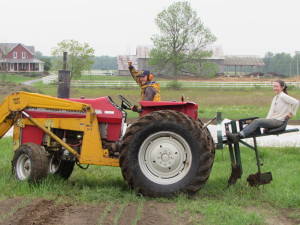
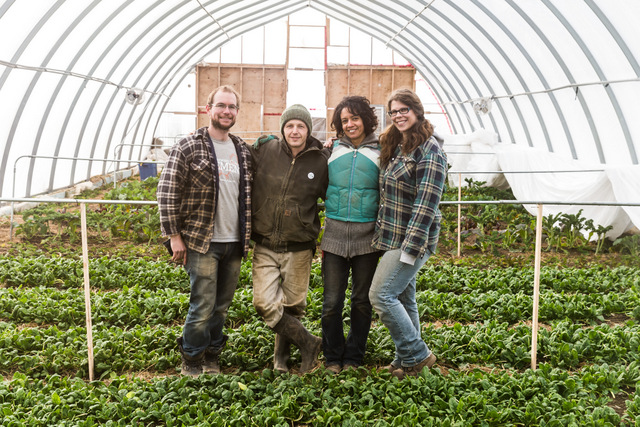 A close working relationship with the farm managers and the chance to participate in farm planning and decision-making. A small team means everyone is given responsibility, takes ownership of certain aspects, and plays a key role in the farm’s success.
A close working relationship with the farm managers and the chance to participate in farm planning and decision-making. A small team means everyone is given responsibility, takes ownership of certain aspects, and plays a key role in the farm’s success.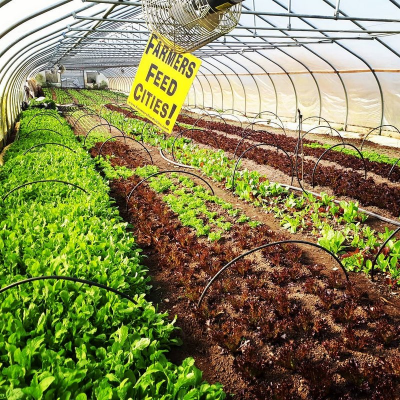
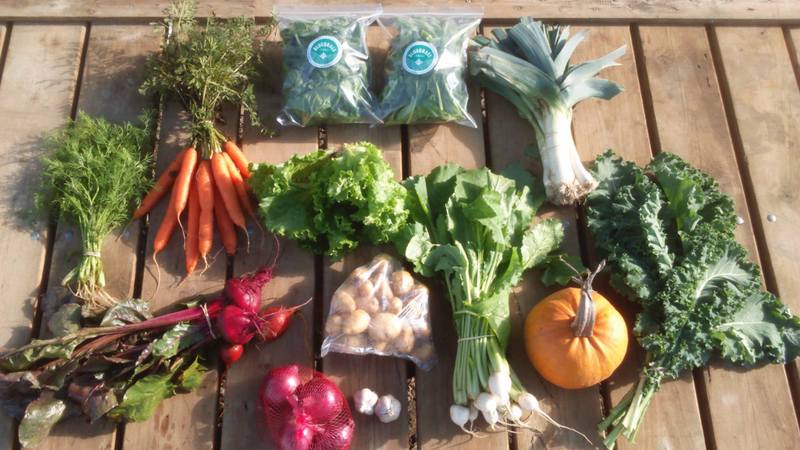
 Winter’s fast and furious arrival has us scrambling. It’s a lot harder to get the farm ready for winter when it’s already here!
Winter’s fast and furious arrival has us scrambling. It’s a lot harder to get the farm ready for winter when it’s already here!

